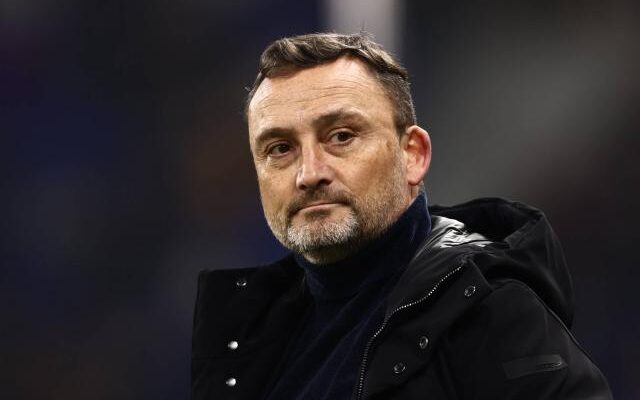In the often tumultuous world of professional football, where managerial tenures can be as fleeting as a fair-weather fan`s loyalty, a recent announcement from OGC Nice has quietly underscored a profound commitment to stability. Manager Franck Haise has extended his contract with the Côte d`Azur club until 2029, a move that is less a headline-grabbing spectacle and more a meticulous strategic maneuver.
The Timing: A Study in Calculated Discretion
While the news of Haise`s extension surfaced during the international break, offering a moment of calm amidst the usual club football frenzy, the manager himself revealed a more intriguing timeline. The agreement, he explained, was actually finalized in August, *before* the current season even commenced. This pre-emptive strike at contract stability is a stark contrast to the common narrative of last-minute deals or mid-season renegotiations driven by performance pressures.
Haise elaborated on this decision, stating, “When the competition starts, I never have talks… I extended because the club and the management offered, in order to avoid the urgency of having to get results and to look to build long-term, to progress things by changing some things.” This statement reveals a strategic foresight that prioritizes sustained development over short-term gratification.
Beyond the Signature: A Philosophy of Long-Term Building
The core of Haise`s explanation lies in a desire to mitigate the inherent pressures of football management. By signing an extension well in advance, both the club and the manager effectively remove the looming specter of a contract expiring, allowing for a more focused approach to team building and tactical evolution. This isn`t merely about job security; it`s about creating an environment where deep-rooted progress can flourish.
Consider the typical scenario: a manager entering the final year of their contract often faces intense scrutiny, with every result dissected for its potential impact on their future. This can breed a reactive, short-sighted approach. Haise`s early extension at OGC Nice, however, fosters:
- Uninterrupted Focus: The ability to concentrate solely on football matters without the distraction of personal contractual negotiations.
- Strategic Recruitment: A clear, long-term vision makes it easier to attract and retain players who fit the club`s future direction, rather than just immediate needs.
- Youth Development: Investing in younger talent requires patience, a luxury often afforded only when the managerial position itself is stable.
- Club Cohesion: A stable managerial helm signals continuity and a unified direction from the top down.
The International Break Announcement: A Stroke of PR Genius
The decision to announce the extension during a period of international matches, when club football takes a temporary hiatus, was equally deliberate. Haise noted, “We wanted to get the most important things over with: the work, the first matches, the transfer window, and for the extension, we wanted to announce it when there was the international break and it was a calmer time. It was planned like that.”
This reveals a calculated approach to communications. By delaying the announcement, OGC Nice avoided diverting attention from crucial early-season matches and the intense activity of the transfer window. Instead, the news was released into a relatively quiet news cycle, allowing it to resonate without being overshadowed. It’s a pragmatic move, emphasizing substance over sensationalism – a characteristic that seems to define Haise`s approach.
What This Means for OGC Nice
Franck Haise`s contract extension is more than just a piece of administrative news; it is a statement of intent from OGC Nice. It signifies a profound belief in their manager`s vision and an unwavering commitment to a long-term project. In a league as competitive as Ligue 1, and indeed across European football, such stability can be a formidable asset.
For OGC Nice, this means:
- A consistent philosophical direction on the pitch.
- Enhanced ability to plan for future transfer windows with certainty.
- A clear message to players and staff about the club`s ambitions and leadership.
- Reduced susceptibility to the rumor mill and speculative media reports that can destabilize a club.
This move isn`t about avoiding pressure entirely; it`s about intelligently managing it, ensuring that the focus remains firmly on developing a strong, sustainable football club. It`s a testament to the idea that sometimes, the most effective strategies are those executed with quiet conviction, far from the dramatic glare of the spotlight.








